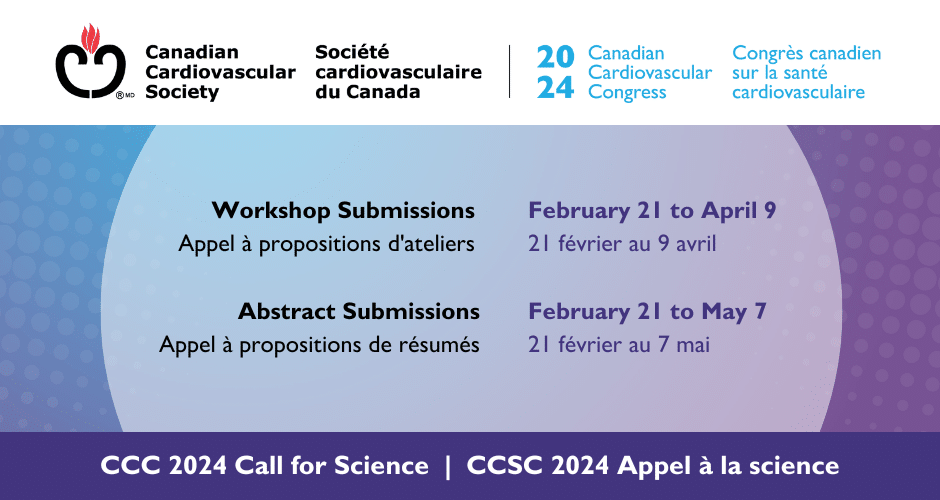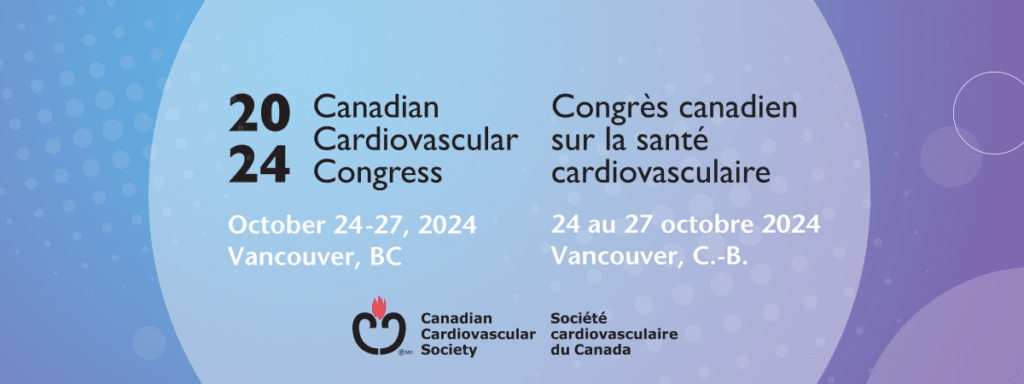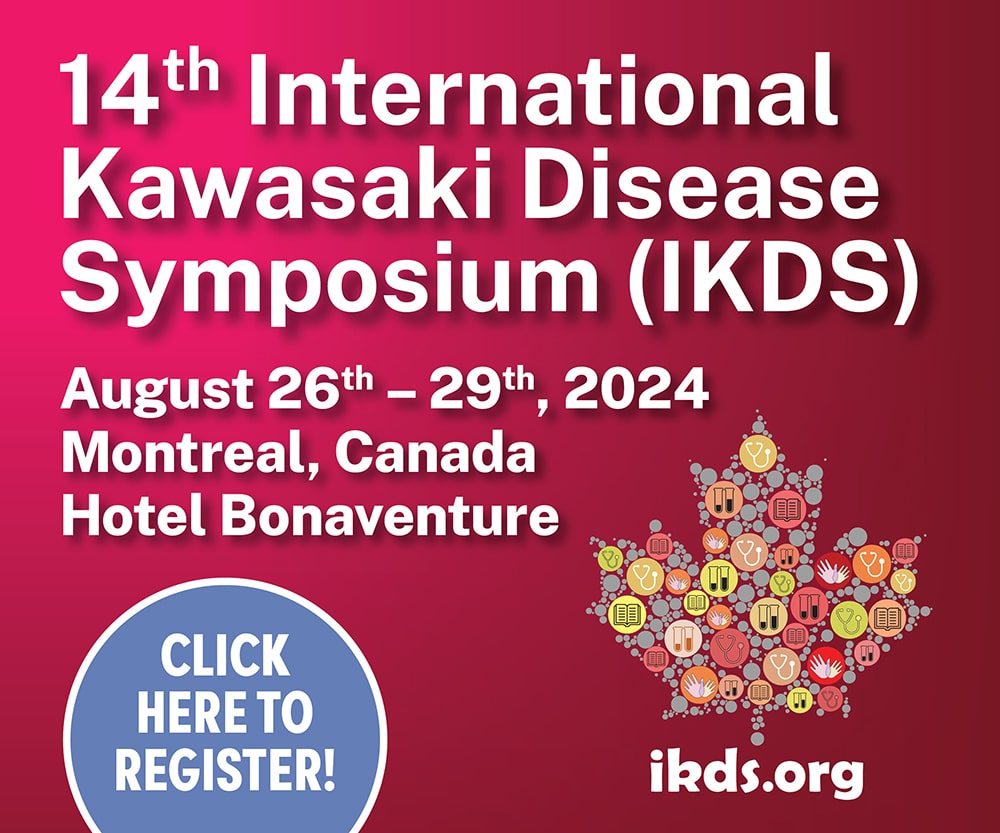CCC 2024 Call for Science
Submit your science today
The 2024 Canadian Cardiovascular Congress (CCC) Call for Science is open! Spread the word and take advantage of this opportunity to showcase your work on the CCC 2024 stage in Vancouver, BC from October 24 to 27.
Key Dates:
April 9: General workshop, Multi-discipline workshop, and Spotlight submissions close at 12:00 p.m. ET.
May 7: Abstract, Encore Abstract, and Clinical Case submissions close at 12:00 p.m. ET.
Learn more about the Call for Workshops and the Call for Abstracts.

Continuing professional development
We offer in-person and online learning activities to cardiovascular professionals at all stages of their career. We are also recognized by the Royal College of Physicians and Surgeons of Canada as a fully accredited provider of CPD credits within the College’s Maintenance of Certification (MOC) Program.
Learn moreUpcoming Events
See AllCSCS Spring Meeting 2024
May 23-25, 2024CHFS Heart Failure Update 2024
May 24-25, 2024CHRS Annual Meeting 2024
September 13-14, 2024
Save the Date: CCC 2024
The 2024 Canadian Cardiovascular Congress will take place October 24 through 27 at the Vancouver Convention Centre. Stay tuned to cardiocongress.ca for details!
Meet the 2024 CCS Trainee Committee

Learn more about the relationship between CCS trainees and faculty in cardiovascular medicine, science, and surgery across Canada.
Prepare for your Royal College of Physicians and Surgeons exam. You’ll get realistic exposure to the examination process and an opportunity for feedback from faculty.
Latest News
See AllUpdate on the Short Supply of Aminophylline in Canada
April 19, 2024
Aminophylline is an injected pharmacologic agent that reverses the effects of medicines used during...
AminophyllineCelebrating National Volunteer Week at CCS
April 18, 2024
CCS members have a diverse range of skills, experience, interests, and backgrounds. One common trait...
CCS News MembershipSupport the CCS National Lipid Screening Awareness Campaign
April 12, 2024
Lipid screening is a key component of risk assessment for primary prevention of atherosclerotic...
ASCVD Cholesterol Dyslipidemia GuidelinesSupport trainees through the CCSA
The Canadian Cardiovascular Society Academy supports education, research, scholarships and bursaries for medical students and prospective cardiovascular specialists. Show your support for the Academy through an Online Donation or a Gift of Securities.




